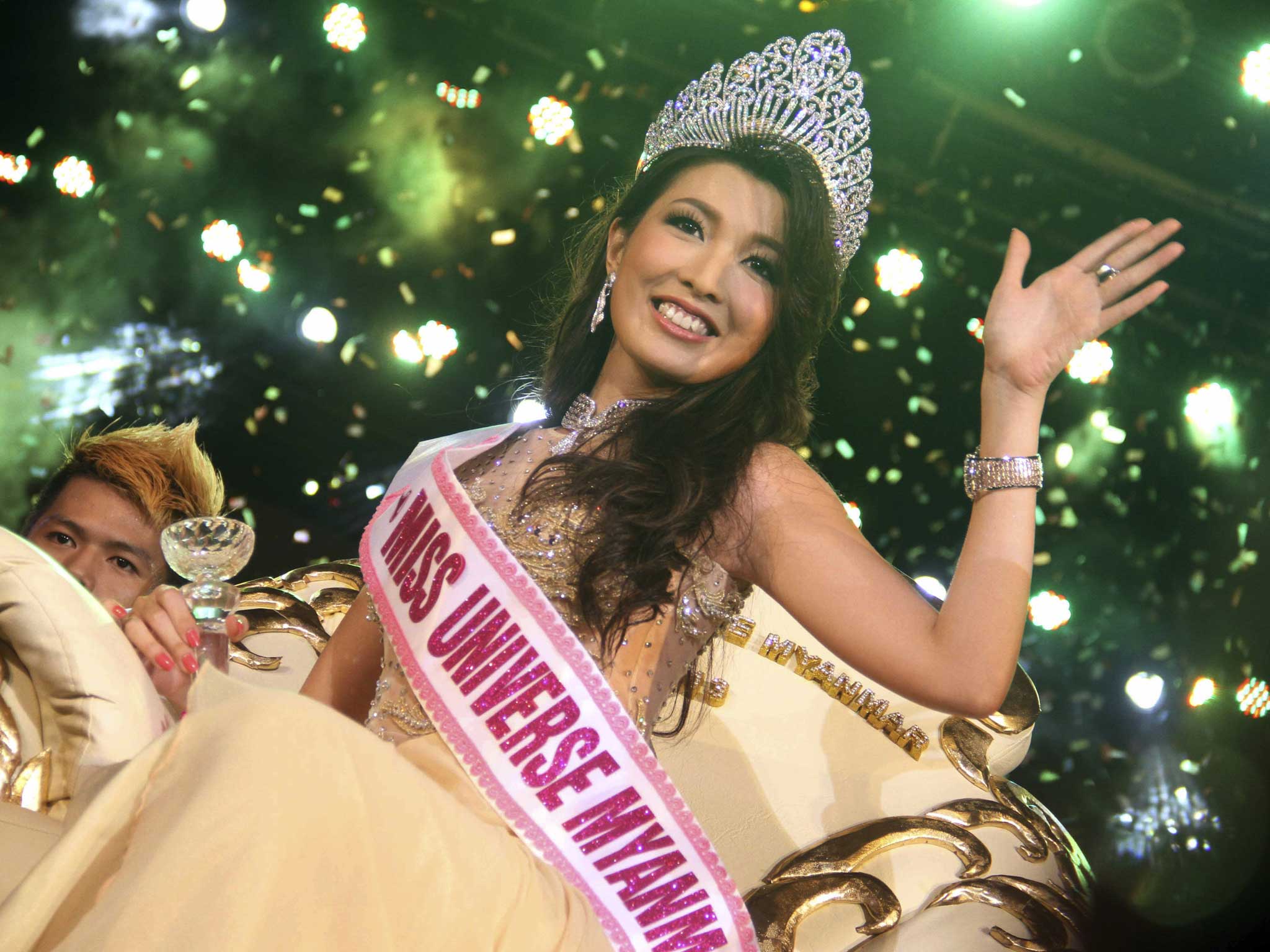Burma's return to Miss Universe contest after 50-year break sparks controversy

Burma's decision to compete in the Miss Universe contest for the first time in 50 years has sparked controversy with activists saying the move is being used by the government to try and convince the world that the country has inexorably changed.
On Thursday, US-educated 25-year-old Moe Set Wine was selected to represent Burma in the competition for the first time since 1961. She secured the nomination after winning a national pageant, held in Rangoon.
“I feel like now I am part of the history and I feel like a soldier that is doing something for the country and my people,” she told the AFP.
Burma has previously fielded three contestants in the Miss Universe contest - in 1959, 1960 and 1961. But just months after a woman called Myint Myint Khin took part in the 1961 event, a coup by General Ne Win set Burma on a path of military rule and isolation that lasted for more than half-a-century.
Campaigners say the government of President Thein Sein is using events such as the beauty contest to try and convince the world that Burma has entirely changed. The reality, they say, is quite different; jails still contain scores of political prisoners, democratic reforms remain limited and the ability of farmers and ordinary people to hold onto their land against developers and businesses is limited.
“Burmese people didn’t get gunned down on the streets protesting for the right to take part in Miss Universe,” said Mark Farmaner of the Burma Campaign UK. “Those hailing Burma’s return to Miss Universe as a sign change in Burma are in fact highlighting the superficial nature of how reforms are being judged.”
He added: “Human rights abuses in today’s Burma are worse that when the country last took part in Miss Universe in 1961.”
Mr Farmaner highlighted the case of Thant Zin Htet, a student activist who was arrested in June this year. He was detained for his role promoting the rights of farmers in Burma who were protesting over the confiscation of land. He is currently being held in Paungde prison in central Burma where he is being tried.
Mr Farmaner’s organisation called on Baroness Catherine Ashton, the EU High Representative who will oversee the drafting of a UN General Assembly Resolution on Burma, to include a demand for releasing political prisoners.
“Just calling for the release of political prisoners is not good enough,” said Wai Hnin, the group’s campaign officer. “This is the time to tackle the issue properly to make sure that not one political activist is left in Burma’s jails.”
Moe Set Wine, Burma’s entrant to the Miss Universe event, also won $10,300 in prize money and a new car at Thursday’s event. She will take part in the 62 Miss Universe pageant, to be held in Moscow, on November 9. Contestants from more than 80 countries are due to participate.
Join our commenting forum
Join thought-provoking conversations, follow other Independent readers and see their replies
1Comments